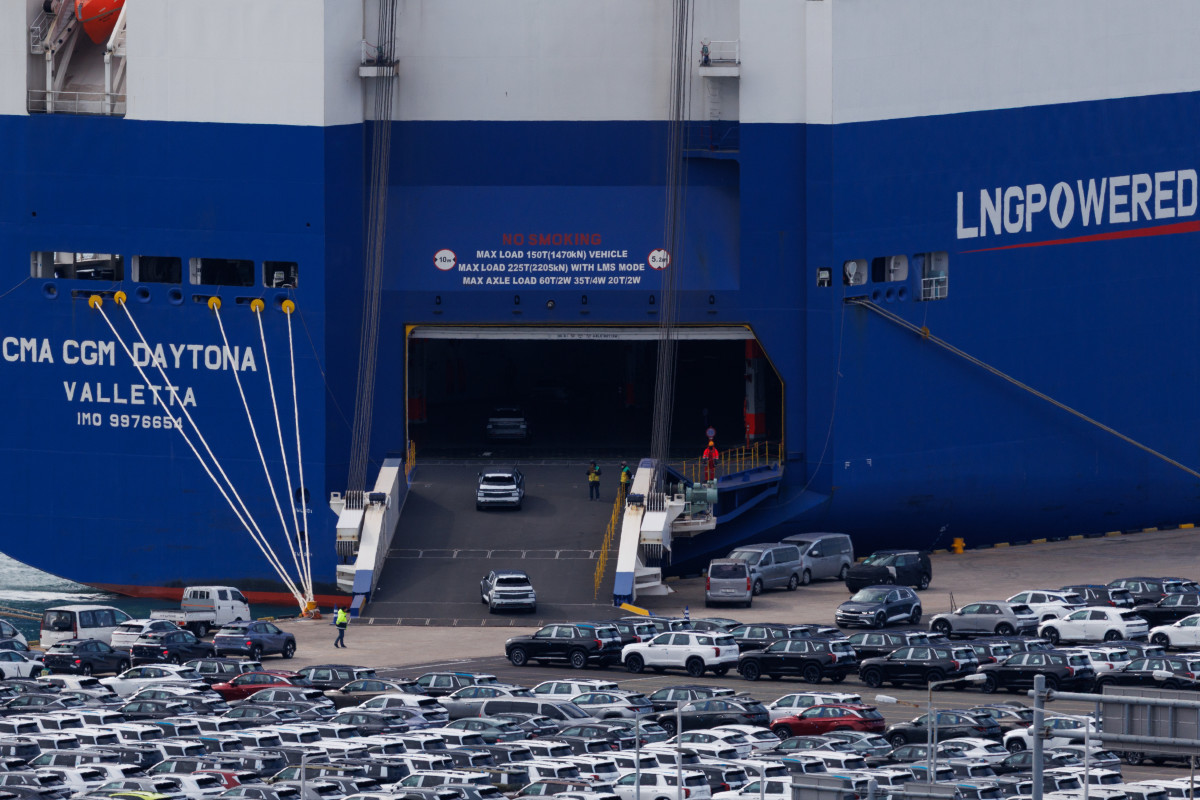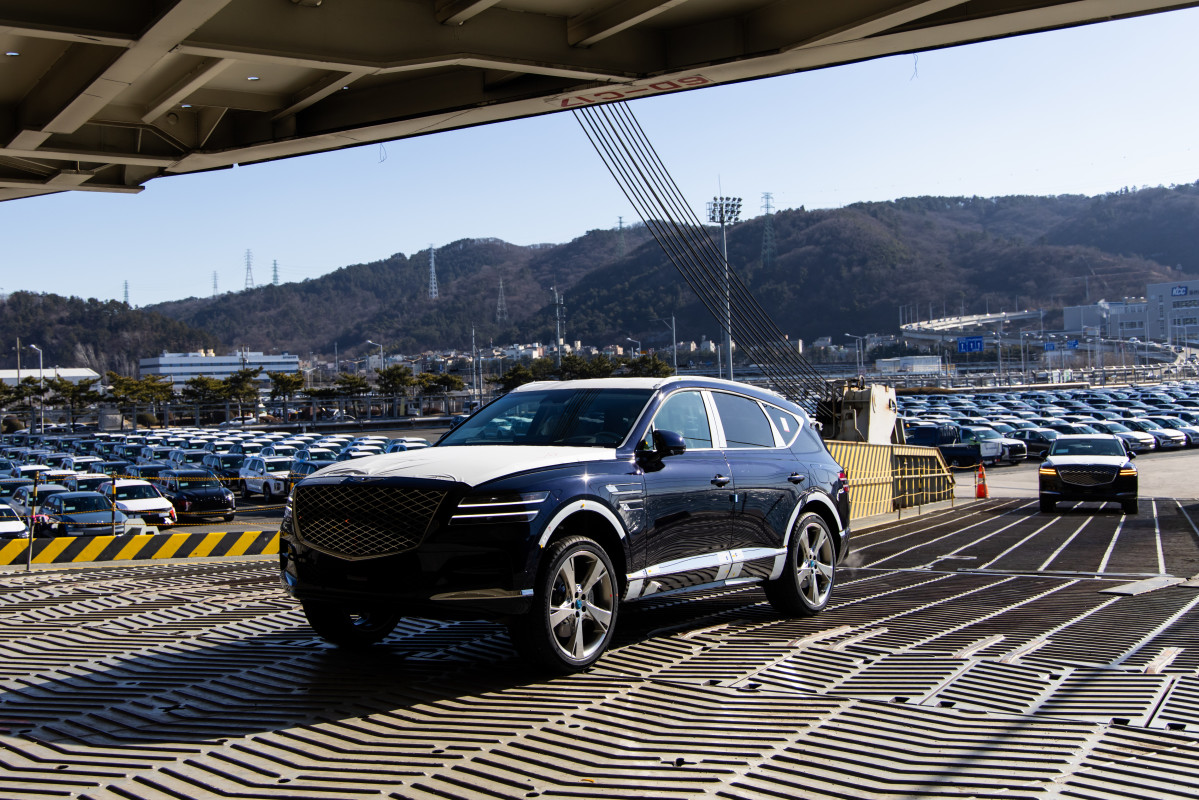The U.S. and South Korea have reached a trade deal
South Korean automaker Hyundai is praising the Trump Administration and the government of its home nation for reaching a trade agreement that would allow the Hyundai, Kia, and Genesis brands to continue their U.S. investments and business strategy. On July 31, Seoul time, U.S. President Donald Trump took to his Truth Social account to announce that he reached a trade deal that would levy a 15% tariff on South Korean products imported to the United States, down from an initial 25% levy that would also affect the country’s automotive imports, including parts and finished cars.
In a statement, the Hyundai Motor Group, the parent company of the Hyundai, Kia, and Genesis brands, noted this agreement as “historic,” as it highlights its $21 billion investment in the U.S. through 2028 and its efforts in creating over 100,000 direct and indirect jobs in one of its key markets.

SeongJoon Cho/Bloomberg via Getty Images
“Today’s trade agreement between the United States and the Republic of Korea represents a historic achievement that strengthens our alliance and creates unprecedented opportunities for sustained prosperity,” Hyundai Motor Group said in a statement. “For Hyundai Motor Group, this agreement validates our unwavering confidence in the U.S. market and our commitment to American manufacturing.”
The recent announcement follows a March 2025 announcement in which Hyundai Motor committed to a bold $21 billion investment in U.S. manufacturing that would boost its annual American production capacity to 1.2 million cars. Notably, the centerpiece of the American manufacturing package is a $6 billion steel mill in Louisiana operated by Hyundai Steel that will produce 2.7 million tons of steel each year and create 1,400 jobs.
According to South Korea’s Ministry of Trade, Industry, and Economy, the United States is one of the country’s most important trade partners. Shipments bound for U.S. ports account for 19% of all of the country’s exports across all industries. In a statement, the ministry stated that the agreement it reached with its U.S. counterparts puts its domestic automakers on an equal playing field with the rest of the world.
“It is of great significance that the uncertainty has been largely resolved as the tariff negotiations of major Korean competitors such as Japan and the EU have been concluded recently,” the trade ministry said, translated from Korean.

SeongJoon Cho/Bloomberg via Getty Images
The agreement between the South Koreans and Americans goes beyond tariffs
In addition to a reduced tariff rate, the deal between the U.S. and South Korea puts the East Asian economic powerhouse on the hook for $350 billion in investments in the United States, including a $150 billion contribution towards a shipbuilding cooperation fund to acquire a U.S. shipyard, and other investments in other key industries like nuclear power and semiconductors. However, another key part of the deal is that it makes it easier for South Korea to accept U.S. auto imports by allowing the country to recognize U.S. automobile safety standards, something that has also been a key point of contention in trade agreements with Japan.
“We decided to improve market access to U.S. goods by alleviating some of the nontariff barriers proposed in the U.S. Trade Barriers Report, such as recognizing their equivalence with U.S. automobile safety standards,” the ministry said in a statement, translated from Korean.
Final thoughts
In a report published on July 31, Bloomberg Intelligence analyst Joanna Chen stated that under the new 15% U.S. import tariff, Hyundai and Kia could face as much as $5 billion in additional costs in 2025. From a numbers perspective, it is as much as 25 to 30% of their 2024 earnings before interest and taxes (EBIT). In addition, sales from the South Korean domestic auto giants could be threatened because of loosened restrictions on American auto imports baked into the recent trade agreement.
According to a July 10 report by Just Auto, registration data from the Korea Automobile Importers & Distributors Association (KAIDA) revealed that sales of imported light passenger vehicles (cars) in South Korea rose by almost 10% to 27,779 units in June 2025 compared with 25,300 units a year earlier. However, the bulk of these numbers is dominated by German luxury brands, which accounted for close to 64% of import sales in South Korea. BMW and its Mini brand have the largest share, making up 30% of total imports in South Korea.
Though the Germans have a strong foothold, there could be an opening for American luxury brands like Cadillac, which already have a strong presence in South Korea. Notably, the brand has established its EV lineup, which could make a dent in a country with a healthy appetite for battery-electric and hybrid vehicles.